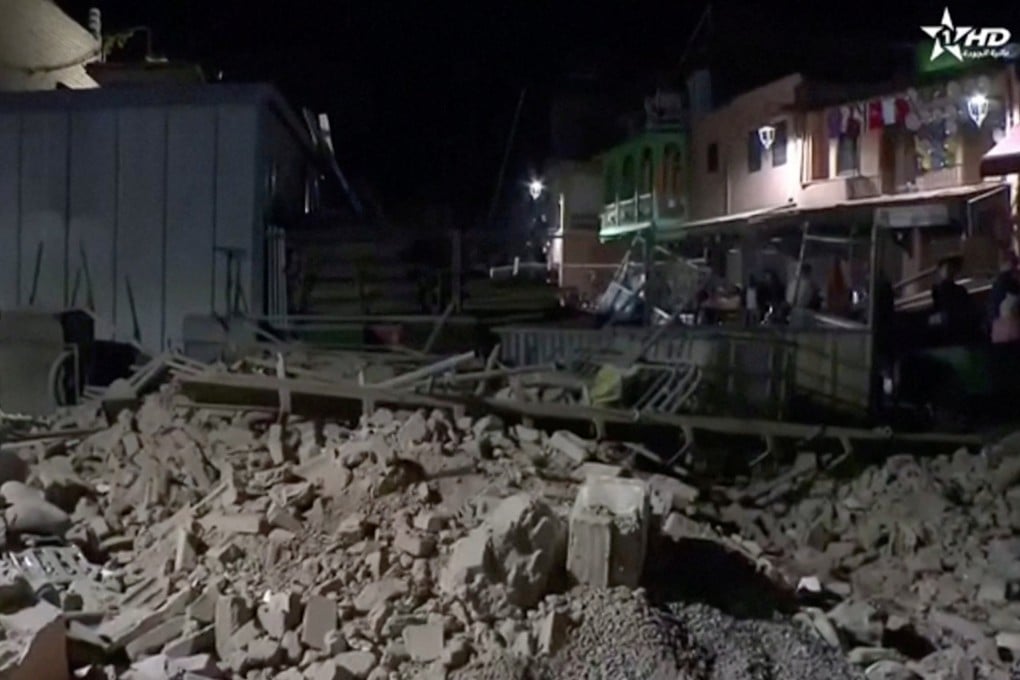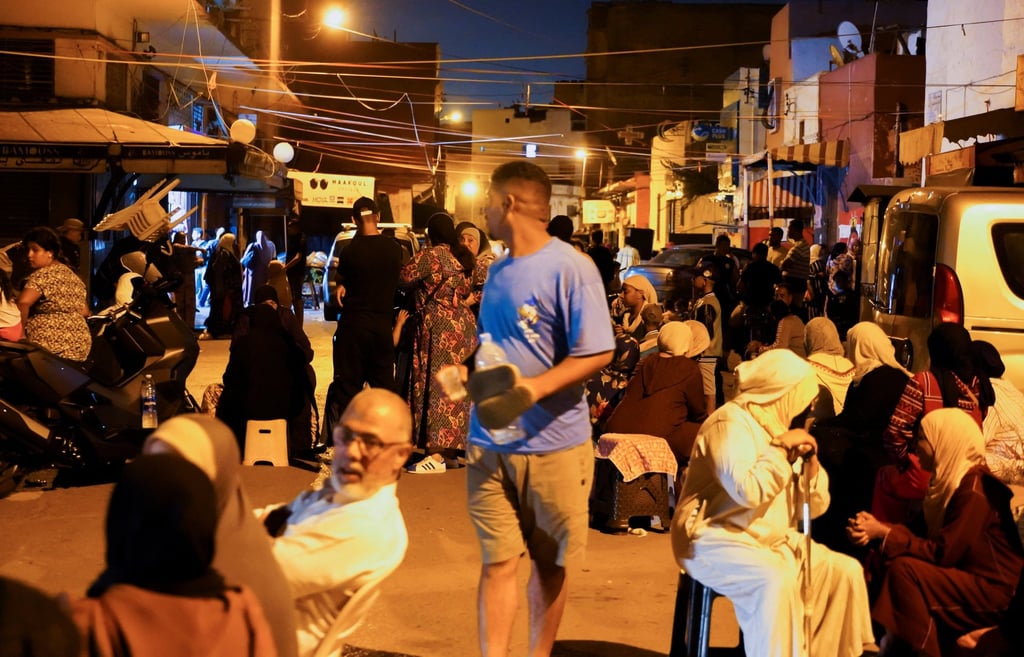Powerful earthquake kills more than 1,000 in Morocco, damages Marrakech
- Interior ministry figures showed 1,037 people are dead and 12,00 injured
- Marrakech residents report damage in the historic old city, as the US Geological Survey puts the quake’s magnitude at 6.8

A powerful earthquake that shook Morocco late on Friday killed more than 1,000 people, interior ministry figures showed, sending terrified residents fleeing their homes in the middle of the night.
Updated interior ministry figures on Saturday showed the quake killed 1,037 people, more than half of them in Al-Haouz and Taroudant provinces. The ministry also recorded deaths in Ouarzazate, Chichaoua, Azilal and Youssoufia provinces, as well as in Marrakech, Agadir, and the Casablanca area.
Another 1,200 people were injured, the ministry said.

Residents of Marrakech, the nearest big city to the epicentre, said some buildings had collapsed in the old city, a Unesco World Heritage site. Local television showed pictures of a fallen mosque minaret with rubble lying on smashed cars.
The Interior Ministry urged calm, saying in its televised statement on the death toll that the quake had hit the provinces of Al Haouz, Ouarzazate, Marrakech, Azilal, Chichaoua and Taroudant.
Montasir Itri, a resident of the mountain village of Asni near the epicentre, said most houses there were damaged. “Our neighbours are under the rubble and people are working hard to rescue them using available means in the village,” he said.
Further west, near Taroudant, teacher Hamid Afkar said he had fled his home and felt aftershocks. “The earth shook for about 20 seconds. Doors opened and shut by themselves as I rushed downstairs from the second floor,” he said.